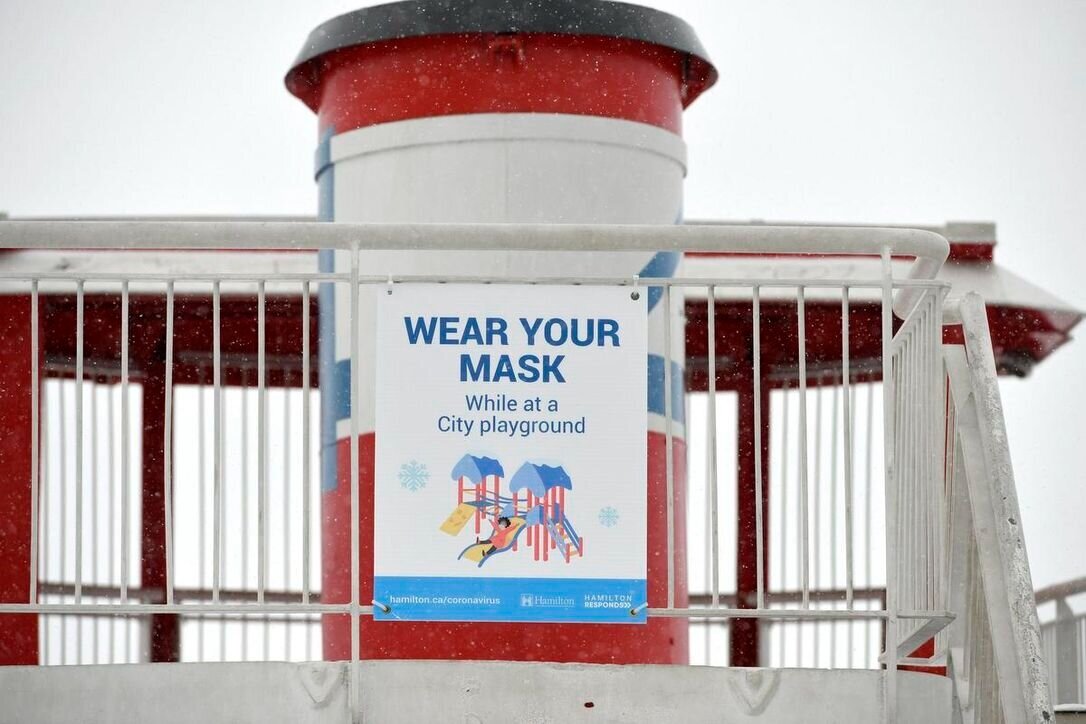A sign reminds us all we’re in a pandemic.
One day down the road someone too young to read this now, too young to remember or not yet here, will ask you, what was it like?
There will be books and blockbuster movies about the year (years?) the deadly Corona virus wiped out millions of people and changed the world. The science, the politics, the back-lash and economic fall-out will be chronicled along with the terrible toll it took on so many.
The archives will document the inspiring stories of our frontline heroes and providers, the factory workers who re-tooled to provide PPE and sanitizer, volunteers who kept the needy fed and sheltered; how typically these horrendous challenges brought out the best in humanity. Then there will be statistics on the positive impact on planet Earth as industry and vehicular traffic slowed emissions and perhaps the rate of global warming. There will be rejoicing and reflecting once the hoped-for vaccines begin to save the rest of the globe’s population. Some will see it as a higher power that pushed the re-set button and maybe, just maybe, it will be written that we will have found some new enlightenment about how we treat one another and our environment.
But what about you and your story? Maybe you are working from home, struggling to make do with reduced income or government assistance or retired but quietly following the directives the experts tell us will bring about an end to the pandemic. You have given up social activities with family and friends, travel plans and the simple freedom of walking down the street or wandering through the mall without a care about how close you come to a stranger...a small price to pay as many social media postings. remind us. Our parents and grandparents went to war. We can sit on a couch. Yes, we can. Or we can do things we never had time to do B.C. (before Covid).
Whenever life challenges came my way in the past, I was grateful I had the time, thanks usually to a change in employment, to spend with my parents in their final years, sisters going through a rough time, a new puppy to train even though she ended up training us! It’s okay to look for the gifts when you have time, whatever the reason.
When I’m asked, what was it like for me, I will say:
1. I thought more about living in the moment. I became mindful about selfcare and didn’t lose things or bump into things as much.
2. I cherished the extra time with my best friend and life partner, even though he really wasn’t into Netflix.
3. I reached out more to relatives and friends. I waved and said hello to passersby.
4. I was grateful for the unconditional love of our four-legged guardian angel Millie who was a source of joy, forced us to walk every day and was always a comfort through life’s heartbreaks and disappointments.
5. I constantly challenged myself technically: teaching online, apps and memes, despite having to reach out to a younger member of the family for help, often.
6. I cooked…from recipes and from scratch. I used to call my culinary efforts “bought from scratch” and I honestly don’t know what I fed my family when there never was time.
7. I nailed Sudoku and Crosswords (medium difficulty but full disclosure: I had to cheat a little).
8. Though I committed to learning the ukulele I didn’t beat myself up for not advancing beyond “Somewhere over the Rainbow”.
9. Ditto for learning Spanish and Italian and improving my French and German.
On the more mundane level…
10. I came to know the joy of a re-organized Tupperware drawer.
My story about the pandemic is far from over. It will never get written up in a book, unless I write one, or be turned into a blockbuster movie but I hope that someday, someone’s life will be a little richer for it, even if it just makes them smile.
So, what will you say when someone asks, what was it like?
Connie Smith, Always Good New, is a free-lance journalist, former CHCH-TV news anchor and teaches at Mohawk College. Reach her at conniesmith.ca
View the article on The Hamilton Spectator website here.


